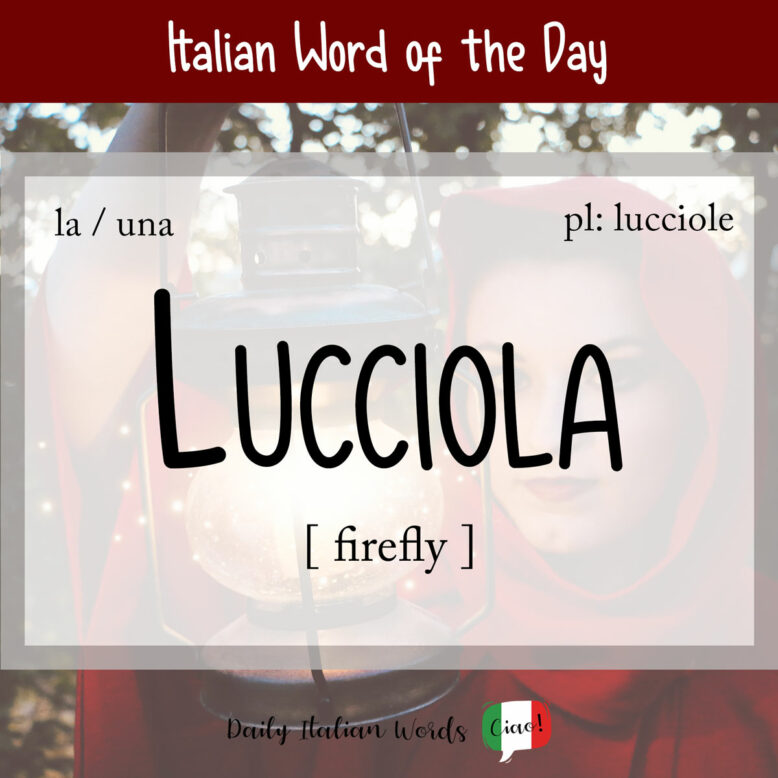The Italian word for a firefly, glow-worm or lightning bug is lucciola (feminine, plural: lucciole). It comes from the Latin lucjola, which is the diminutive form of lux lucis meaning light.

All species of lucciole, both at the larva and adult stage, are characterised by the ability to produce luce (light) from the abdomen due to a phenomenon called bioluminescence.
Di notte, le lucciole illuminano il bosco. È uno spettacolo bellissimo e surreale.
At night, the fireflies light up the woods. It’s a beautiful and surreal sight.

In the world of cinema and theatre, lucciola was once used to refer to a person (usually a woman) who showed people to their seats using a pocket flashlight when the lights went off. It also denotes a type of reflector for film shooting that radiates an intense and well-distributed light.
Colloquially, you can use the word as a euphemism for prostitute or streetwalker because lucciole attract mates with their glowing rear ends!
Finally, a beautiful word to describe a cloud of fireflies (uno sciame di lucciole) is lucciolaio.
Idioms with the word ‘lucciola’
Three idiomatic expressions in which lucciole are mentioned are:
Dare a intendere lucciole per lanterne
Literal translation: to lead someone to believe that fireflies are lanterns
English meaning: to trick, to tell lies, to misrepresent reality
Prendere lucciole per lanterne
Literal translation: to take fireflies for lanterns
English meaning: to misunderstand
Vedere le lucciole
Literal translation: to see fireflies
English meaning: to experience intense physical pain
An uncommon variation of vedere le stelle (lit: to see stars)
Heather Broster is a graduate with honours in linguistics from the University of Western Ontario. She is an aspiring polyglot, proficient in English and Italian, as well as Japanese, Welsh, and French to varying degrees of fluency. Originally from Toronto, Heather has resided in various countries, notably Italy for a period of six years. Her primary focus lies in the fields of language acquisition, education, and bilingual instruction.


